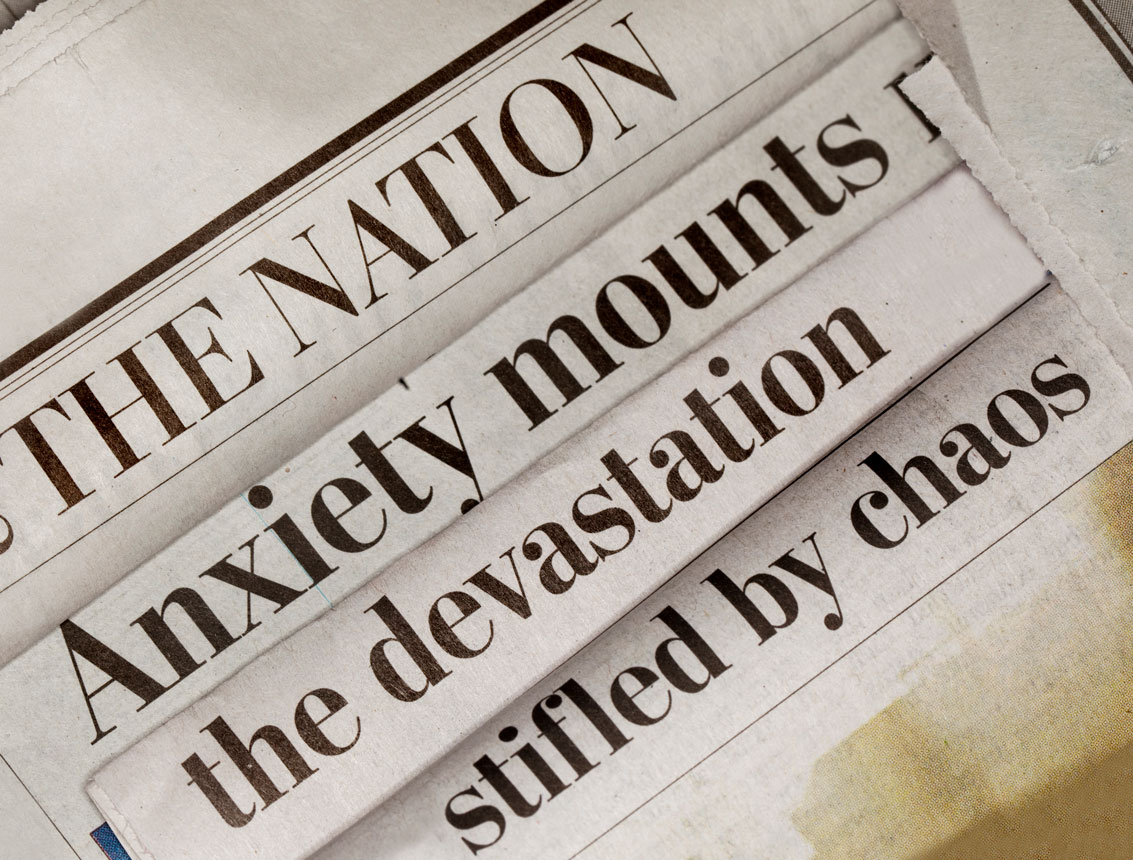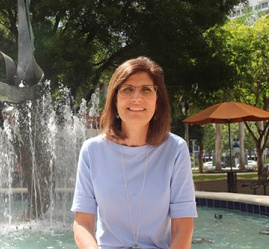The Anxiety of COVID-19

The message is so dire, the news so pervasive that even the staidest among us are getting nervous — very, very nervous. Frankly, some are even freaking out.
There’s been a run on hand disinfectant. People are losing sleep and patrons are swiping toilet paper rolls from public bathroom stalls. People who are immunocompromised due to cancer treatments or chronic illnesses are particularly worried. The slightest tickle in the throat sends us into panic mode: Is it coronavirus or isn’t it?
Welcome to the age of COVID-19.
Anxiety has become a way of life and dread about what might happen a common conversation topic.
“Anxiety is a human emotion that keeps us safe,” says Maria Rueda-Lara, M.D., a psychiatrist with Sylvester Comprehensive Cancer Center, part of the University of Miami Health System. “In this case it helps us engage in behavior that will keep us healthy, so that’s good. But when it affects our daily functioning, when it consumes us, then it can be a problem.”
There’s a reason why we’ve been feeling a simmering apprehension these past few days. A round-the-clock news cycle makes it impossible to avoid the subject, and every morning brings a fresh dispatch of new COVID-19 cases and deaths. Entire countries have been quarantined, professional sports seasons cancelled, university classes moved online, and school districts shut down. It’s like a perfect storm of bad — and confusing — news.
Close to home, Dr. Rueda-Lara has seen routines change within her own social circle. Two friends of her 12-year-old daughter recently cancelled their birthday parties, for instance. And effusive greetings are much more subdued, if not altogether avoided.
“In Miami, because of the Latin influence, there is a lot of kissing and hugging,” she says. “You just don’t see that anymore.” A good change in these fraught times, by the way, since the Centers for Disease Control and Prevention recommends social distancing to prevent further spread of the pandemic.
But even with constant reminders to wash your hands and avoid large gatherings, Covid-19 — and how the virus will affect our lives — is causing a lot of uncertainty. How do I keep my family healthy? What do I do with the kids now that schools are closed? Can I work from home? Will I even have a job?
“Not knowing what’s going to happen affects how we feel,” Dr. Rueda-Lara.
“We like to think we have some control.”
The uncertainty can be particularly difficult for older adults and those with a chronic illness and compromised immune system. “These patients have to take extra measures,” says Dr. Rueda-Lara, who treats patients and survivors of cancer. “They worry not just about possibly contracting the virus but whether they will miss treatment, if hospitals will have enough beds, will they be able to go to the doctor. It’s a whole other burden of worry.”
One of the more vulnerable set of people are patients who have undergone blood stem cell transplants for cancer and whose immune systems are therefore compromised, making them more susceptible to infections. “The stem cell transplant and cell therapy faculty work closely with Dr. Rueda-Lara and other colleagues to provide specialized services to address stress and anxiety in transplant recipients, including screening and specialized care including by psychologists and psychiatrists who understand their unique needs,” explains Krishna V. Komanduri, M.D., director of the Adult Stem Cell Transplant Program at Sylvester Comprehensive Cancer Center and Kalish Family Chair in Stem Cell Transplantation.
This has meant that the transplant program “developed specialized guidelines for cell therapy recipients and a number of new processes to ensure their safety, including to limit their risk, evaluate them swiftly and safely if they are concerned they might have infection and to provide optimal care under these circumstances. A dedicated website with information tailored to their needs is already live.”
Much of the uncertainty, even for healthy people, is due to the fact that, unlike the seasonal flu or many other contagious diseases, we still don’t know a lot about COVID-19. What we do know so far — its fatality rate appears to be at least 10 times that of the flu — is scary.
As humans, we simply don’t like the unknown.
In fact, our stress over COVID-19 is so high that, on March 10, the World Health Organization published mental health tips for everyone from older adults to healthcare workers and people in isolation.
But there are measures you can take to ease the distress. Here are Dr. Rueda-Lara’s suggestions:
- Focus on what you can control and follow those safety measures. Wash your hands with soap and water for 20 seconds or use hand sanitizer with 60 percent or higher alcohol. Don’t touch your face. Avoid coming into contact with infected people. Stay home if you’re sick. Disinfect surfaces that could be contaminated with germs.
- Turn off the news. You don’t need to read every alert. “You should have information that is practical and that helps you protect your health,” she says.
- Stick to trustworthy sources for guidance. The CDC has lots of information on the coronavirus, so there’s no need to scour other websites, which may not have the right advice or up-to-date information.
- Download and use a meditation app such as Calm, Headspace or dozens of other online resources. Also try meditating or practicing slow, purposeful breathing. Take up yoga.
- Exercise – at home. Physical activity releases endorphins that help reduce emotional stress.
- Connect with friends and family using technology. FaceTime, WhatsApp, Zoom, and a host of other apps can help you stay in touch with your loved ones even if you’re not in the same place physically.
- Have a contingency plan. When you know your alternatives in case your kid’s school closes or you’re asked to telecommute, you can rest easier.
If managing anxiety still proves difficult, “talk to a mental health professional,” says Dr. Rueda-Lara. “You’re not alone. There’s help out there.”

Ana Veciana-Suarez, Guest Columnist
Ana is a regular contributor to the University of Miami Health System. She is a renowned journalist and author, who has worked at The Miami Herald, The Miami News, and The Palm Beach Post. Visit her website at anavecianasuarez.com or follow @AnaVeciana on Twitter.
Tags: anxiety, COVID-19, Dr. Maria Rueda-Lara, mental health, psychiatry, psychology
